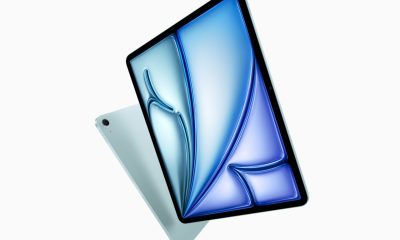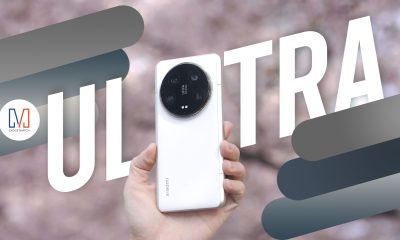Enterprise
Huawei is willing to help Apple by selling them 5G modems
Despite the tension between their home countries

The 5G race keeps on heating up. While we can’t easily buy a true 5G phone and use one on a real 5G network yet, manufacturers are very keen on delivering the next generation of mobile broadband.
Samsung and LG already have plans for a release this April, while Huawei and Xiaomi will follow suit in the coming months. Apple, on the other hand, might be having some trouble in creating a 5G-enabled iPhone with Intel as its partner.
Last week, we found out that both Qualcomm and Samsung have rejected Apple’s request to buy 5G modems due to some beef and supply issues. So, where does Apple turn to?
According to Engadget‘s source, Huawei is “open” in giving Apple a hand in 5G. The Chinese company is willing to sell its Balong 5000 5G modems. Quite surprising news really, considering the current issues between Huawei and the US government.
Apart from the US versus China fiasco, Huawei refuses to sell their powerful home-baked processors and other chipsets to competitors. Also, the Balong chip is designed for Huawei’s own IoT products and phones. If this is true, Apple is getting special treatment here.
Again, this is merely a rumor which is unsurprisingly juicy. Both Huawei and Apple are yet to give official statements or information on an upcoming deal. Let’s not forget that MediaTek is also an option.

For the longest time, Google kept Pixel and Android behind two different teams. While the Pixel team dealt with devices made by and for the brand, the Android team ships a product meant for brands outside of the company’s purview. However, the days of separation are at an end. Google is officially merging its Pixel and Android teams together.
In a shocking announcement, the company has confirmed that the teams handling hardware and software will fall under a single team headed by Rick Osterloh. Prior to the merge, Osterloh was the senior vice president of devices and service, which was Google’s hardware branch. He will now oversee both hardware and software.
Because of the new leadership change, Hiroshi Lockheimer, former head of Android, will now move on to other projects within Alphabet. Of note, the change is not harsh for Lockheimer. He and Osterloh had been contemplating on the merge for a while.
Now, why the change? As is the case with everything today, it’s all because of AI. Speaking to The Verge, Osterloh explains that the merge will help with “full-stack innovation.” With how technology is these days, it’s now impossible to develop AI without having a close eye on hardware, such as in Google’s AI developments for the Pixel camera. Merging the teams will help streamline development, especially when hardware is involved.
Despite the change, outside brands, like Qualcomm’s Cristiano Amon, remains confident of Android’s capabilities outside of Google. Just expect more AI coming out in the near future.

The ongoing trade war between the United States and China is putting a lot of companies out of business in one country. While all eyes are currently on America’s crusade against TikTok, China has launched a salvo of its own. The country has started banning AMD and Intel, starting with government devices.
Recently, as reported by the Financial Times, China has introduced a new rule that bans American chipsets and servers from government agencies. The new ban includes AMD, Intel, and Microsoft Windows.
In lieu of the now-banned brands, Chinese government agencies must use approved brands from a list of 18 Chinese manufacturers. Unsurprisingly, the list includes Huawei, another brand involved in the ongoing trade war. (Huawei is still banned on American soil.)
As with bans from America, China’s latest rules stem from a desire to implement national security. Both countries allege that using brands from the opposing side will open a potential avenue for transferring classified information.
Currently, the ban against the American chipsets are only affecting government devices. However, if it follows the same trajectory as Huawei and TikTok in the United States, a government-only ban might soon lead to an all-out ban on consumer devices. As TikTok is currently hanging in the balance, it’s unlikely that the trade wars will cool down anytime soon.

So far, Apple’s greatest enemy has been the European Union. Months and months of claiming that the company engages in anti-competitive practices, the region has successfully caused Apple to drastically change a lot of things about the iPhone including the Lightning cable. Now, a new challenger wants Apple to answer for its supposed grip on the industry: the United States government.
Today, the Department of Justice is officially suing Apple for supposedly monopolizing the smartphone industry and stifling competition. The lawsuit alleges that Apple’s lineup of products prevent users from trying out other brands. For example, Apple limits how well a third-party smartwatch works on an iPhone, pushing users to go for an Apple Watch instead.
The lawsuit also includes an important pain point in Apple’s fight in Europe. It says that the company makes it difficult for iPhone users to communicate with Android users (and vice versa). Late last year, the company already committed to supporting RCS as a messaging standard, finally easing communication between the two systems. Their adoption has yet to arrive, though.
Though not as stringent as Europe, the American government is no slouch when it comes to questioning its own companies for pursuing anti-competitive practices. In the past, it went through Google and Spotify to protect the interests of its citizens. The lawsuit against Apple is no different, gathering signatures from sixteen states.
For Apple’s part, the company aims to get the case dismissed, alleging the lawsuit’s unfair scope of just the American people when it targets the entire world.
SEE ALSO: Apple opens first Developer Center in Southeast Asia
-
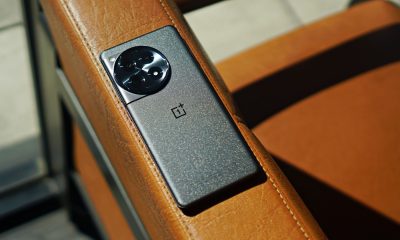
 Reviews1 week ago
Reviews1 week agoOnePlus 12R review: Making sense of OnePlus’ latest flagship
-

 Reviews2 weeks ago
Reviews2 weeks agorealme 12 5G review: It was enchanting to meet you
-
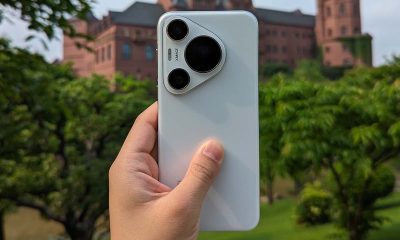
 Smartphones1 week ago
Smartphones1 week agoHuawei Pura 70 Pro Unboxing and First Impressions
-
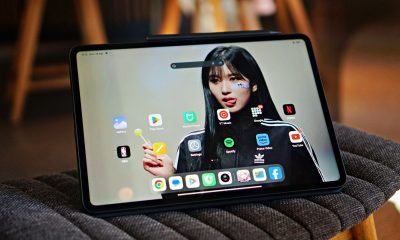
 Reviews6 days ago
Reviews6 days agoXiaomi Pad 6S Pro 12.4 review: Bigger and better
-
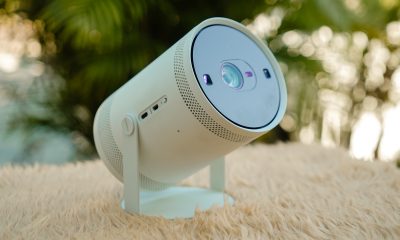
 Convenient Smart Home6 days ago
Convenient Smart Home6 days agoI swear, Samsung’s The Freestyle spells freedom
-

 News2 weeks ago
News2 weeks agoZTE nubia Neo 2 5G now in the Philippines: Pricing, details
-

 Smartphones2 weeks ago
Smartphones2 weeks agoHMD announces 1st line of own smartphones
-

 Smartphones1 week ago
Smartphones1 week ago‘Esports-level’ Infinix GT 20 Pro now official




